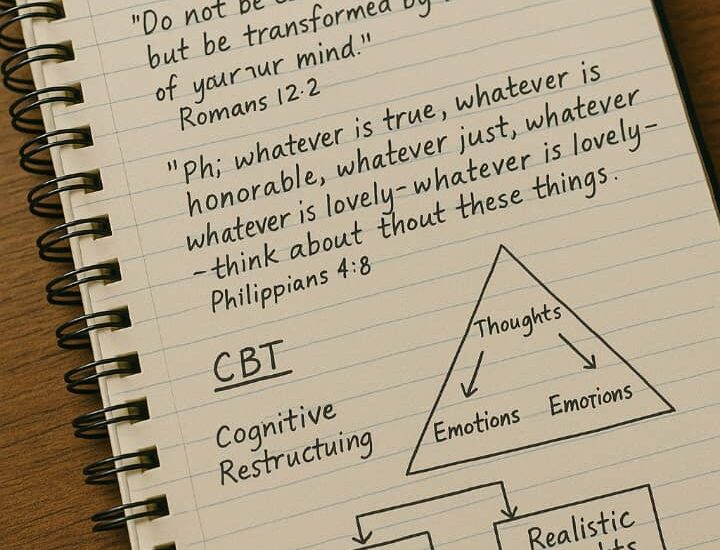Spiritual therapy merges faith with psychology for deeper healing. Discover how sacred practices can complement clinical mental health care. I’ll never forget the day my aunt refused counseling after her divorce. “No stranger can fix what’s broken in here,” she’d say, tapping her chest. Then her pastor suggested someone different, a therapist who also happened to be a seminary graduate. That first session, when the counselor referenced Psalm 34:18 (“The Lord is close to the brokenhearted”) instead of textbook psychology, something shifted. For the first time, my aunt felt seen in her pain rather than pathologized. Her journey taught me that when mental health care honors the spiritual dimension, healing reaches places talk therapy alone cannot touch.
The Gap Between Belief Systems and Clinical Care
Many people hesitate to seek therapy because they fear their faith will be reduced to a symptom rather than respected as part of their identity. I’ve watched devout clients shut down when therapists dismiss their spiritual experiences as mere coping mechanisms. A Muslim friend once walked out of a session when her therapist suggested her prayer rituals were “avoidance behaviors” never considering that her five daily salats provided structure during depressive episodes. Spiritual therapy bridges this divide by viewing belief systems as foundational to worldview, not just cultural add-ons.
The most effective practitioners I’ve observed don’t simply tolerate religious talk, they actively integrate it. A grief counselor working with Jewish clients might explore the Kaddish prayer’s psychological wisdom about communal mourning. Therapists versed in Indigenous traditions could incorporate talking circles or nature-based rituals for clients whose healing is tied to land connection. My aunt’s therapist had her rewrite Psalms in her own words as emotional processing blending Scripture study with narrative therapy techniques. When belief and psychology stop competing and start collaborating, transformation happens.
The Science of Sacred Practices
Modern neuroscience now confirms what ancient traditions always knew: spiritual engagement changes the brain in unique ways. Studies using fMRI scans show that religious meditation activates different neural pathways than secular mindfulness practices particularly in areas associated with self-transcendence and pain tolerance. Hospice research reveals that patients with strong spiritual support experience 30% less end-of-life depression, not through denial but by finding meaning in suffering.
I witnessed this firsthand when volunteering at a hospital where chaplains and therapists co-facilitated groups. Terminal patients who participated in both cognitive behavioral therapy and sacramental rituals (like anointing or guided life reviews) showed significantly less anxiety than those receiving either approach alone. One memorable veteran found peace by combining PTSD exposure therapy with a personalized forgiveness ritual facing traumatic memories while literally laying down weapons at a makeshift altar. The science is clear: when spirituality is skillfully integrated, it becomes more than comfort, it’s clinical intervention.
Navigating Spiritual Wounds and Toxic Theology
Not all faith experiences are healing, some require delicate unraveling. I’ve sat with clients whose anxiety stemmed from being told God would punish their doubts, or whose depression worsened under prosperity gospel pressure to “pray away” mental illness. One woman developed panic attacks whenever she entered a church after years of abusive confession practices.
Skilled spiritual therapists approach these wounds like surgeons removing harmful beliefs while preserving healthy faith tissue. Techniques I’ve seen work include helping clients “edit” punitive scriptures by rewriting them with compassionate language, or using empty chair dialogues to distinguish between human religious failings and divine love. For my client haunted by hellfire sermons, we created a “counter-message” playlist of spiritual songs emphasizing grace, a cognitive restructuring tool disguised as worship. The goal isn’t to destroy belief systems, but to detoxify them.
Finding Qualified Spiritual Care
The field remains frustratingly unregulated, anyone can claim to be a “Christian counselor” without proper training. After seeing well-meaning but unqualified leaders cause harm, I now advise looking for three credentials: proper mental health licensing, spiritual competency training (like Clinical Pastoral Education), and commitment to client-led faith exploration rather than proselytizing.
My aunt’s ideal therapist held a psychology PhD plus a theology degree, but excellent options exist at the intersection of tradition and science. Buddhist-oriented therapists might blend mindfulness-based cognitive therapy with dharma principles. Indigenous practitioners often incorporate storytelling and land-based healing. Even secular therapists can receive training in spiritually integrated care, the key is their willingness to enter your sacred world without imposing their own.
Bringing Sacred Wisdom Into Daily Life

Professional help isn’t always necessary to blend spirituality and mental health. Simple practices can weave the two together: keeping a “gratitude jar” where daily blessings are collected and reviewed during low moments, or creating personal rituals around difficult transitions (lighting a candle when making tough decisions). A friend battling insomnia adapted the Ignatian Examen into a nightly emotional inventory. Another uses “walking prayers” where physical movement becomes meditation.
What matters most is honoring that our souls speak many languages sometimes clinical, sometimes sacred, often both. Whether through formal therapy or personal practice, when we make room for the spiritual dimension of healing, we access reserves of strength and meaning that can sustain us through life’s darkest valleys.
References
Koenig, H. G. (2007). Spirituality and mental health. Psychiatric Clinics of North America, 30(4), 809-827. https://pmc.ncbi.nlm.nih.gov/articles/PMC2755140/.
Silva, M. N., & Marques, A. (2024). Spirituality and recovery from severe mental disorders: A systematic review. Journal of Psychosocial Nursing and Mental Health Services, 62(8), 11–17.
Currier, J. M., & Neimeyer, R. A. (2015). Spirituality factors in the prediction of outcomes of PTSD treatment for U.S. military veterans. Journal of Traumatic Stress, 28(1), 1-8.

